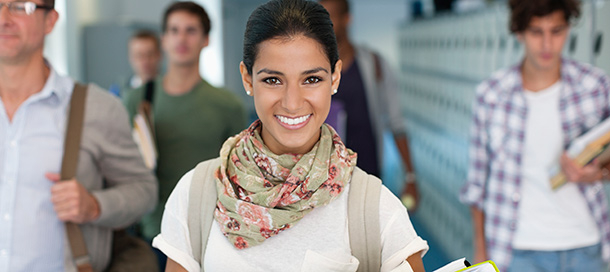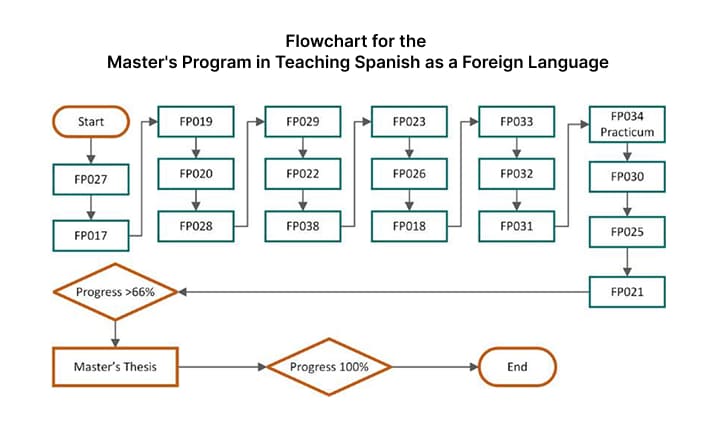
Description
The objective of the program is to offer extensive, up-to-date education and provide the foundation for the development of the academic and professional skills needed for teaching Spanish as a foreign language in any context of the teaching and learning process.
The program is particularly aimed at primary- and secondary-level Spanish as a Foreign Language (SFL) teachers—both in public and private institutions, SFL teachers in adult education, and graduates with relevant qualifications intending to work as SFL teachers.
Learning Objectives
Competencies
- Provide broad and up-to-date training to primary- and secondary-level Spanish as a Foreign Language (SFL) teachers—both in public and private institutions, SFL teachers in adult education, and graduates with relevant qualifications intending to work as SFL teachers, laying the foundations to develop academic and professional skills necessary for teaching SFL with fluency, consistency, and according to the educational context of their professional activity.
- Provide education in new or unfamiliar environments of education within broad contexts related to teaching SFL so that students can apply the knowledge acquired, formulate judgments, make decisions, solve problems, and reflect on their own teaching and professional development.
- Provide students with the methodological tools for conducting specific educational research in language and linguistics applied to Spanish teaching.
Outcomes
At the end of the program, students will be able to:
- Analyze, articulate, and evaluate learning and second language acquisition theories and the methodological trends in the teaching of foreign languages essential for effective teaching and successful learning.
- Analyze how individual factors (cognitive, affective, social, and cultural) affect foreign language learning, and design instructional strategies to address the learning needs of SFL students.
- Manage the SFL classroom so that group processes guarantee the learning of all students: creating a safe space in which all students participate and work collaboratively; using language that fosters the construction of knowledge; selecting activities of greater and lesser cognitive effort; selecting the type of grouping most appropriate for each activity; and paying attention to learning opportunities that may arise, among other aspects.
- Integrate language skill development in the SFL classroom to promote realistic and meaningful language use.
- Analyze, evaluate, select, adapt, and design adequate materials for the teaching of SFL.
- Make critical and reflective interpretations of Spanish usage, applying cultural, linguistic, and pragmatic knowledge when planning the teaching and learning process of SFL.
- Analyze the function of the formal system and communication actions and provide an appropriate method in the Spanish classroom.
- Plan and evaluate the short- and long-term Spanish teaching-learning process, taking into account current linguistic pedagogical trends, the educational context, the methodological approach, lesson plans, students’ interests, needs, and learning styles, and technology advances.
- Integrate ICT in a meaningful, rather than arbitrary, way into the teaching activities for the SFL learning process, and critically analyze the digital materials created in the field.
- Integrate specific training in learning strategies within the program’s objectives and unit contents, aligning it to students’ needs while implementing the necessary learning-to-learn tools.
- Integrate socio-cultural content into the Spanish classroom to give students a gradual understanding of cultural facts and products and socio-cultural knowledge and attitudes of Spanish-speaking countries, the development of intercultural awareness, the ability to act as a cultural intermediary and effectively deal with cultural misunderstandings in conflict situations, and the development of empathy, openness, and interest toward other cultures.
- Properly address the varieties of Spanish in the SFL or SSL classroom according to the teaching and learning context.
- Analyze and evaluate the student’s own teaching and professional development through tools, such as self-observation, journaling, self-assessment, teaching portfolios, etc.; identify areas of learning that can be improved; and plan and implement a personal plan of improvement and lifelong learning.
- Access and correctly use academic literature related to language pedagogy and linguistics applied to foreign language teaching, especially literature related to the Spanish language.
- Design and evaluate specific methodological procedures for research in the field of language pedagogy and linguistics applied to foreign language teaching, especially in research related to the Spanish language.
Who Should Apply
The general profile of the course participants is as follows:
- Primary- and secondary-level Spanish and/or English (SFl and EFL) teachers, both in public and private institutions.
- Adult education Spanish and/or English (SFL and EFL) teachers.
- Graduates in related fields who intend to work as Spanish and/or English teachers (SFL and EFL).
Admission Requirements
To be admitted to the master’s program, applicants must meet the following requirements:
Academic requirements
Applicants must hold one of the following university degrees:
- Bachelor’s Degree in Spanish Language and Literature or in Spanish Philology.
- Bachelor’s Degree in Translation and Interpretation (Spanish language, in the case of foreign degrees).
- Undergraduate of any program comparable to the above, programs to be introduced in the future, or programs existing in the university systems of other countries.
- Undergraduate of any field who is able to provide documentary evidence of having received specific training in SFL teaching through the following means: formal elective coursework at the university level, university-specific degrees, training courses sponsored by institutions such as the British Council, or courses deemed equivalent by the competent body of the Universidad Internacional Iberoamericana.
Linguistic requirements
Applicants whose native language is not Spanish and who have not obtained a university degree in which the language of instruction is Spanish (Spanish Language and Literature, Translation and Interpretation) must demonstrate that they have a C1 level of Spanish according to the Common European Framework of Reference (CEFR) or another equivalent level as determined by the competent body of the Universidad Internacional Iberoamericana to be admitted to the program.
Applicants without these certificates are required to pass a master’s entrance exam, which is administered and evaluated by the Universidad Internacional Iberoamericana.
Duration
This master’s program features a three-part curriculum designed to apply student’s learning to real-life settings that are subject to continuous change. To graduate, students must earn the required number of credits within 24 months. Final exams are held on February 15, June 15, and October 15.
The first part is a general, compulsory module consisting of 17 subjects, which are organized in a mandatory, logical pedagogical sequence; therefore, students shall follow the established line of study. This is followed by the Practicum, which involves submitting a project that applies a theoretical course concept from a practical approach. Following the completion of all subjects in the program and the submission of the Practicum project, students must complete their thesis.
General education: 15 credits
Required: 51 credits
Electives: 0 credits
Structure
| MASTER IN TEACHING SPANISH AS A FOREIGN LANGUAGE | ||||
|---|---|---|---|---|
| CODE | SUBJECT | PREREQUISITES | CREDITS | |
| GENERAL EDUCATION | ||||
| FP017 | Modes of Directing the Classroom | N/A | 3 | |
| FP018 | Observation and Research in the Classroom | N/A | 3 | |
| FP019 | Second Language Acquisition | N/A | 3 | |
| FP020 | Individual Factors in Learning | N/A | 3 | |
| FP021 | Learning Strategies | N/A | 3 | |
| REQUIRED | ||||
| FP022 | Communication and Pragmalinguistic Proficiency | N/A | 3 | |
| FP023 | Language, Culture, and Bilingualism | N/A | 3 | |
| FP038 | Spanish Grammar for SSL Professors | N/A | 3 | |
| FP025 | Spanish and its Varieties | N/A | 3 | |
| FP026 | Teaching Vocabulary | N/A | 3 | |
| FP027 | Methodological Foundations | N/A | 3 | |
| FP028 | Development of Skills in the Classroom | N/A | 3 | |
| FP029 | Creation, Adaptation, and Evaluation of Materials and Resources | N/A | 3 | |
| FP030 | Educational Technology in Language Learning | N/A | 3 | |
| FP031 | Projects and Tasks | N/A | 3 | |
| FP032 | Evaluation of the Language Learning Process | N/A | 3 | |
| FP033 | Curriculum Design and Programming - Theory and Practice | N/A | 3 | |
| FP034 | Practicum | N/A | 5 | |
| THESIS | ||||
| TFC | N/A | 10 | ||
| TOTAL | 66 | |||
Diagram

Degree
Once the subjects and master’s thesis are approved and all academic, administrative, and financial requirements have been met, the following degree will be issued:
MASTER’S DEGREE IN TEACHING SPANISH AS A FOREIGN LANGUAGE
Testimonials
- “The program was well structured, and the organization and the materials were carefully chosen. The administrative staff has always been cordial and quick to respond. I’d like to take this opportunity to thank Lorena Peñaloza in particular, who in a cordial and professional manner always resolved my issues. I also felt well supported in the organization of my thesis. In general, I have a high degree of satisfaction with the program and UNIB.” End of Course Survey.